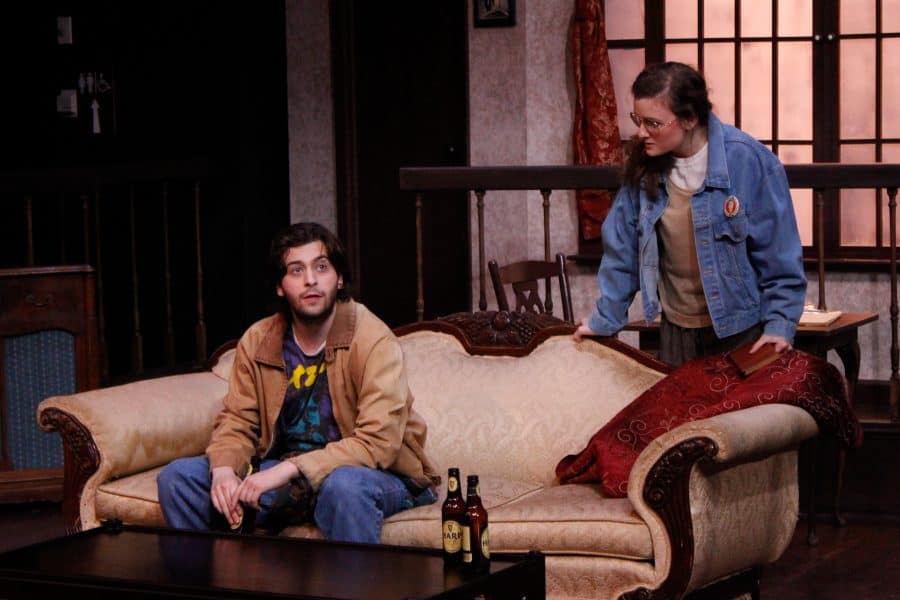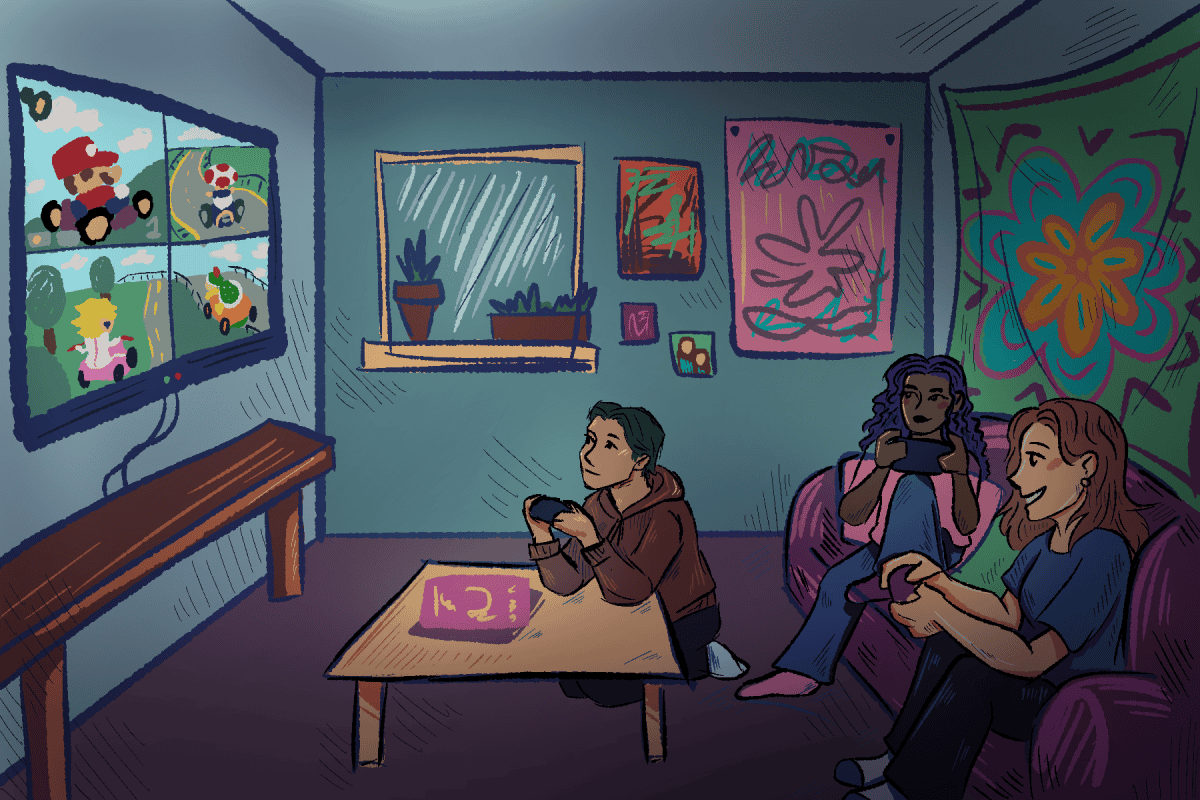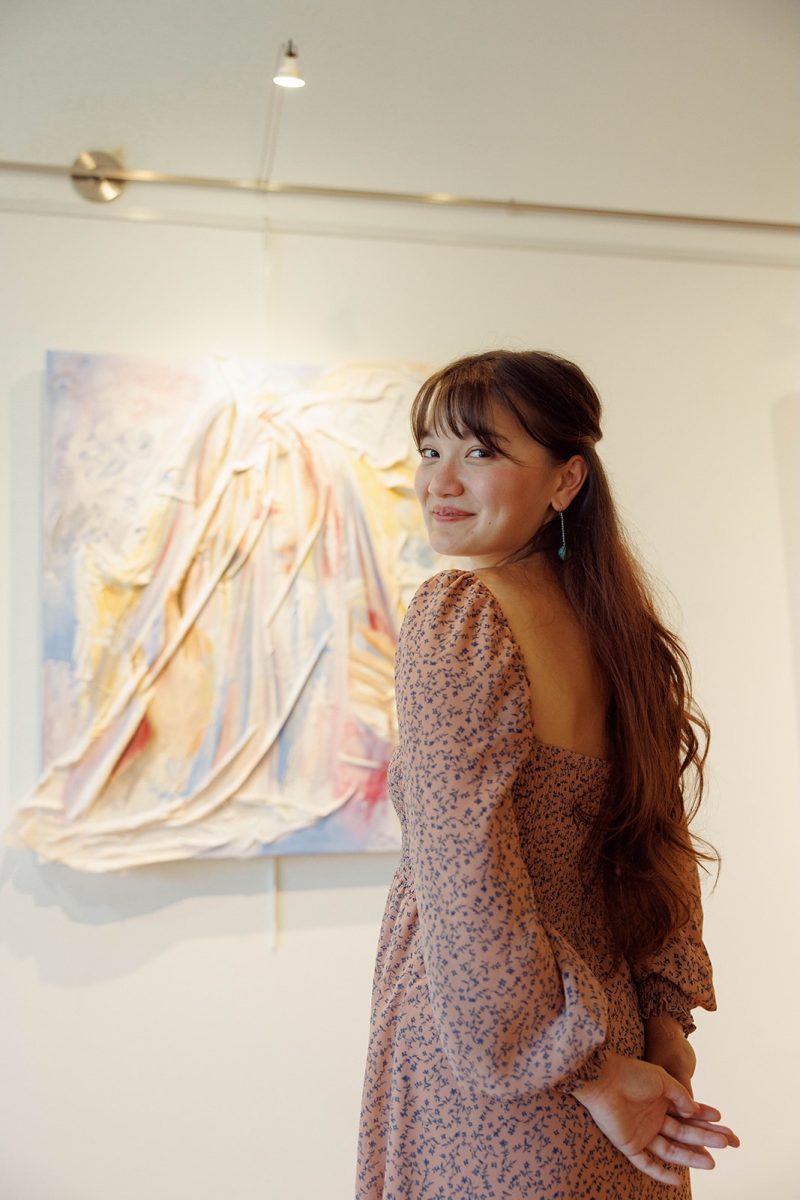Art is often meant to stir the minds and hearts of its audience. To that end, UA’s production of the historical play, “A Bright Room Called Day,” hopes to leave those who attend with thought-provoking questions about themselves and the world around them.
“What stands out to me the most about this play is how poignant it is,” said Tom Alsip, a third-year theatre MFA student a director of the play. “It was written in the mid-80s but when you hear the message, and the content, and the characters’ debates, you’re going to think it was written 6 months ago, and so that’s what’s so incredible about this play to me.”
“A Bright Room Called Day” is showing in Rowand Johnson Hall’s Allen Bales Theatre from Monday, February 26 through this Sunday, March 4. The performances from Monday through Saturday will take place at 7:30 p.m., and the performance on Sunday will be a matinee at 2 p.m. All tickets are $10.
The play is composed of two interwoven plots — one set in Berlin in the 1930s and one set in Berlin in the 1990s. The 1930s plot follows a group of socialists who work in the film industry as they witness Hitler’s rise to power. Meanwhile, the 1990s plot focuses on a woman who has left the United States because she feels as if she no longer belongs there. In Berlin, she finds herself by learning the history of the group of socialists whose plot runs parallel to hers.
“In our history classes and stuff, when you talk about Germany in the 1930s, you talk about Hitler and the rise of fascism, but you don’t necessarily think about the little people involved like the people who weren’t involved in politics but were just kind of the bystanders before the war,” said Zach Stolz, a third year MFA acting candidate who plays the character Baz in the show. “That doesn’t get discussed a lot, and that’s what this group of main characters in this play are.”
Along with the crew who worked behind the scenes to bring the show to life, the cast consists of 10 actors and actresses that play a total of 11 roles.
“This is one of the most talented casts that I’ve ever had,” Alsip said. “They came in rip-roarin’ and ready to go. They knew their history, and they knew their background story. They came in and made incredible choices.”
The director and cast spent a lot of time gleaning knowledge of the time period they were trying to reconstruct. Steven Burch, a professor in the theatre department, acted as their dramaturge.
“A dramaturge is someone who does specific, time-related research to help the director and the actors better and more realistically create the world of the play,” Alsip said.
The actors and actresses found it very important to be knowledgeable of the time because of the thought-provoking themes they wish to convey.
“I think in the show, there’s a strong warning against political inaction,” Stolz said. “You see the fallout of complacency when the world is being turned upside down and being thrown into turmoil. And you see why that’s a bad thing to do. We all know that’s a bad thing to do —to be inactive, but you have a reminder set in front of you about a world event that we all know about from 80 years ago.”
Caroline Ficken, a senior majoring in theatre who plays the role of Agnes in the production, believes the show is especially important for college students.
“It definitely is important for college students just because we’re at a stage in our life where we feel that our opinion isn’t as important as people who are older than us,” Ficken said. “Or perhaps, we’re just not in the habit yet of being politically involved, or just having a voice, or expressing an opinion, or just having conversations about important things in our lives.”
Ficken also addressed how current the play is despite its historical setting.
“I think it’s incredibly educational and empowering,” Ficken said. “It definitely addresses a lot of political issues, not just back in the 1930s, but also today, and the roles that we have in society just as people and human beings. It definitely is political and intellectual, but not in a sense where you don’t understand what’s going on.”
To help those who attend the play further understand its context and become involved in the story, historical facts will be projected on a screen during scene and set changes.
“Come in ready to think and challenge yourself in a good way — which is what college is for,” Stolz said.
Tickets can be purchased by calling 205-348-3400 between the hours of 12 p.m. and 5 p.m. on Monday through Friday. Or, you can order them online at www.theatre.ua.edu or ua.tix.com. Tickets can also be purchased at the door.







